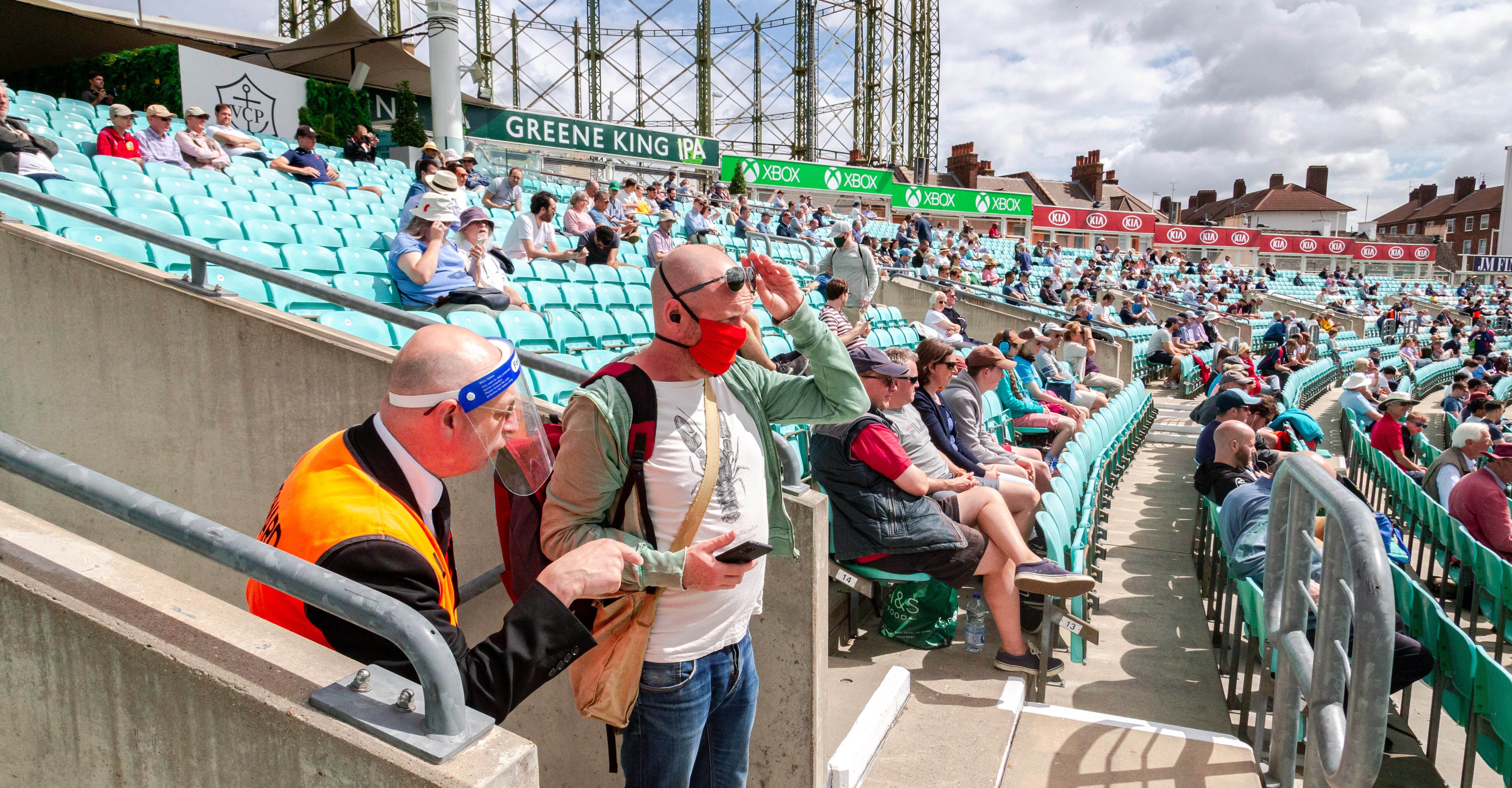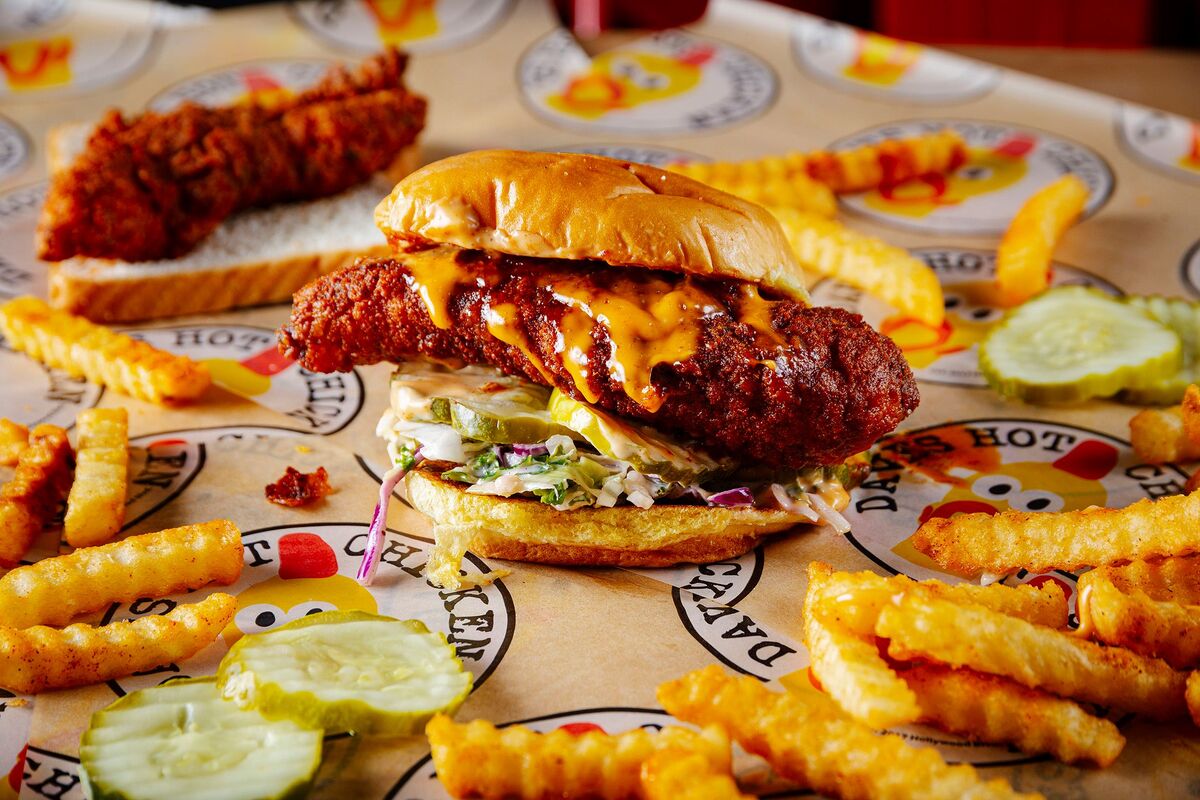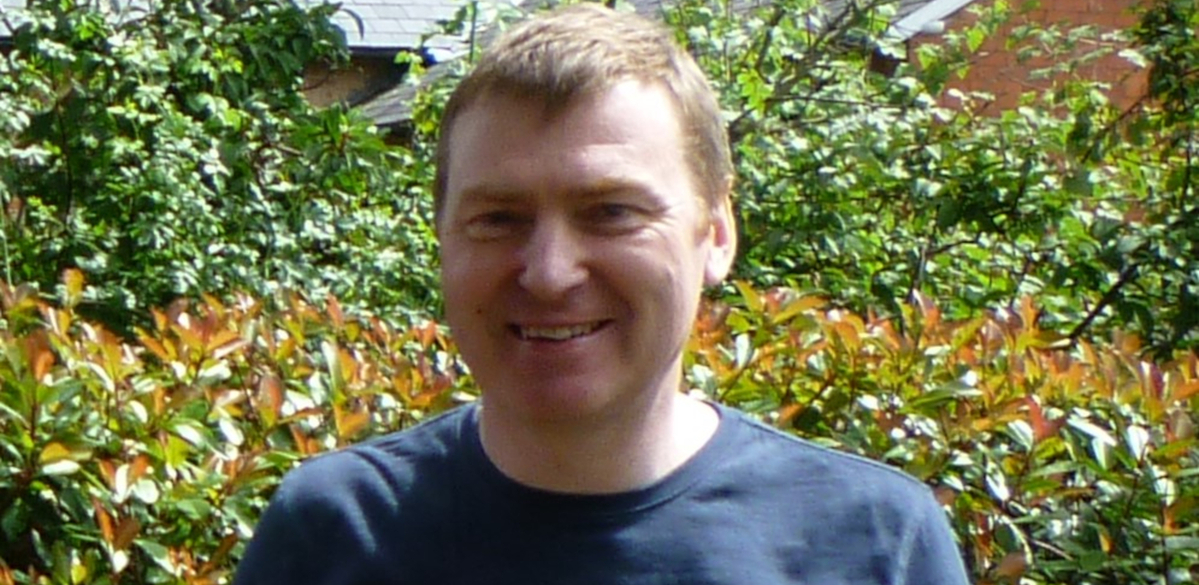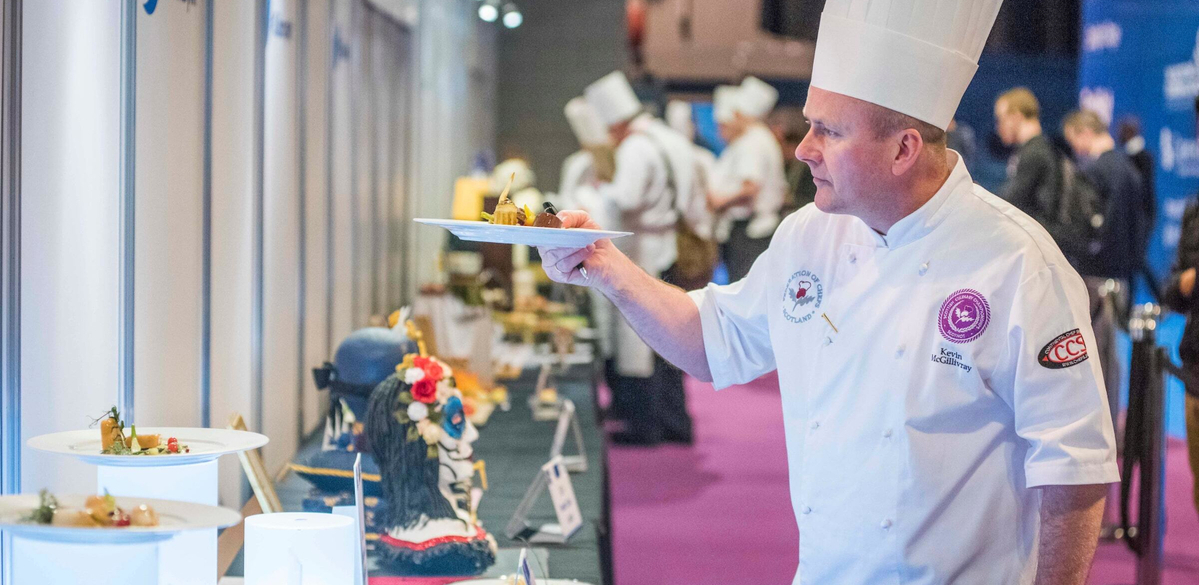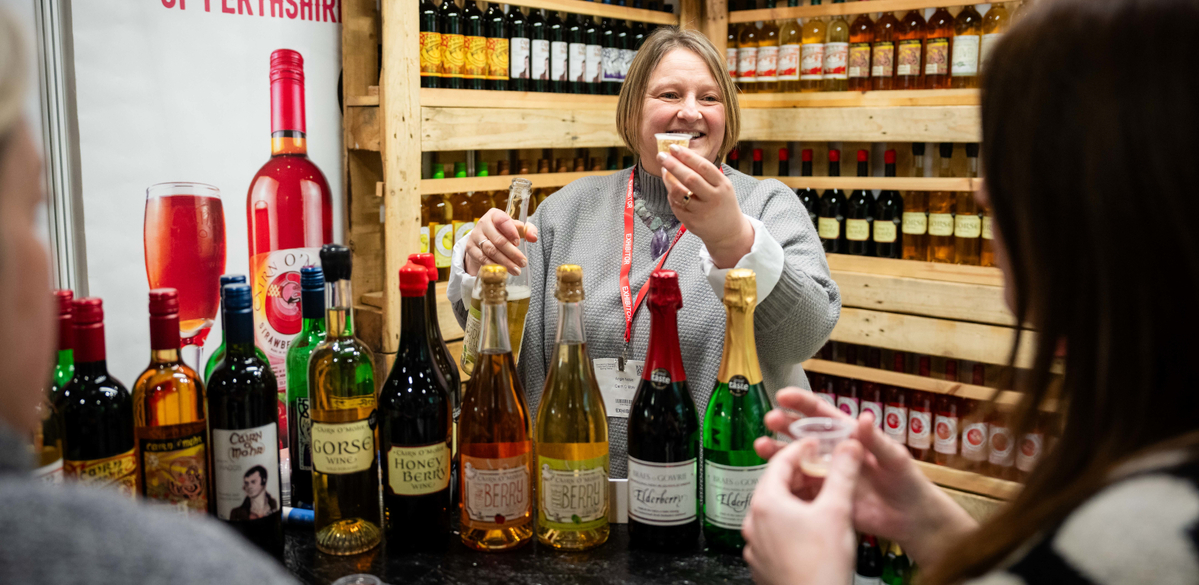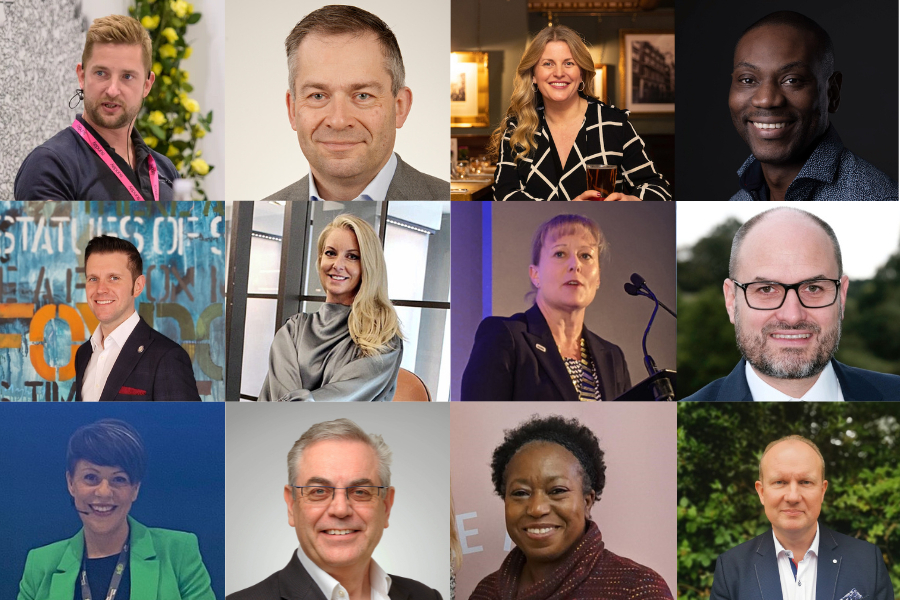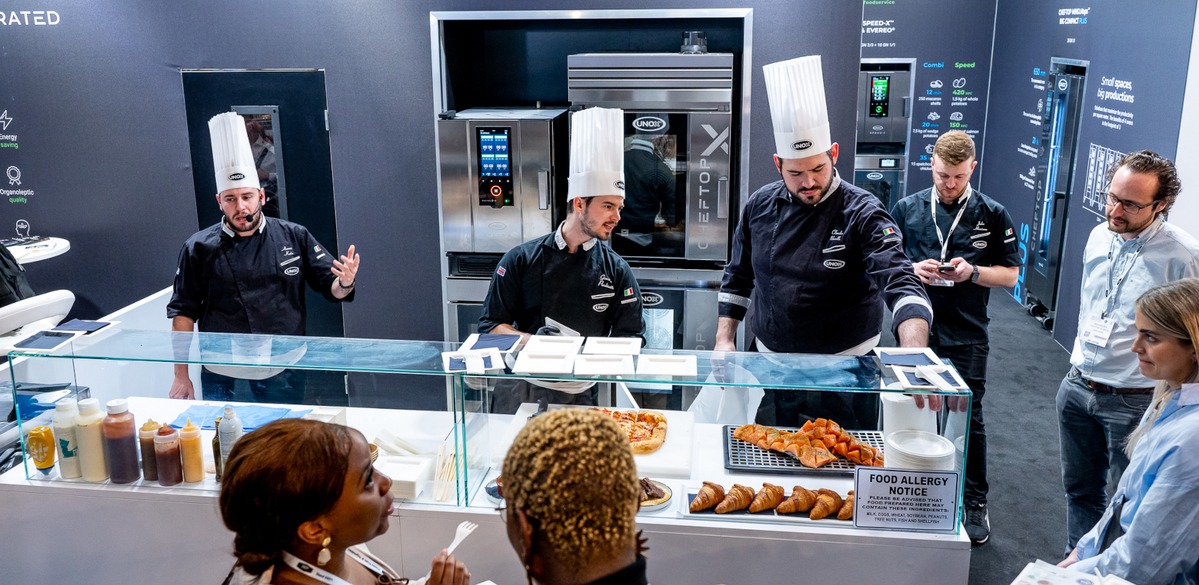Levy calls for timeline for stadium return after caterer scores pilot success
Events and stadium caterer Levy UK has called for a timeline for welcoming fans back to major sporting events after revealing its early pilots have been hugely successful but not financially sustainable.
Levy, part of Compass UK & Ireland, welcomed 1,000 cricket fans back to the Oval to watch Surrey play Middlesex on Sunday 26 and Monday 27 July, followed by a similar pilot in Edgbaston the following day when Warwickshire took on Worcestershire.
It had expected to hold further test events at Goodwood and the Oval at the start of the month, but these were cancelled when the prime minister paused the lifting of restrictions. Yesterday (Thursday 13 August) it was announced that the unlocking of the event sector would resume, and the caterer is now waiting for confirmation of when future pilots will take place.
Discussing the success of the first pilot – so warmly received that the government approved plans for a second larger event by 1pm on day one – Alex Lewis, venue director of the Kia Oval, told The Caterer: “People were incredibly well behaved and incredibly respectful of the measures we’d put in. There was not one instance of someone kicking off about getting into a queue and having to be two metres apart, or not being understood properly by the staff because they were wearing a mask – those niggles we all experienced at the beginning of the pandemic. People are so used to it now that it was actually, really straightforward.”
He added: “For us, 1,000 people is not busy, 2,500 people in half the stadium is not busy – certainly not in relation to any supermarket or park in the last few months. We never had queues going beyond five people. We believe we could go significantly higher and that’s our goal to keep pushing these pilots to continue, but also to keep challenging ourselves.”
Lewis explained that much of the planning had been done ahead of a date for the pilot being confirmed, with the final week seeing provisions put in place to best enable the flow of guests and the serving of an F&B offering. It was, he said, the "final 10%", such as the distribution of condiments, that required thought and some adjustment by staff, who in some cases were returning from months of furlough and needed to acquaint themselves with a somewhat changed workplace.
In setting out its plan the caterer was keen to ensure that while abiding by the 80-plus pages of guidance, it could deliver an experience that people would want to come out and enjoy.
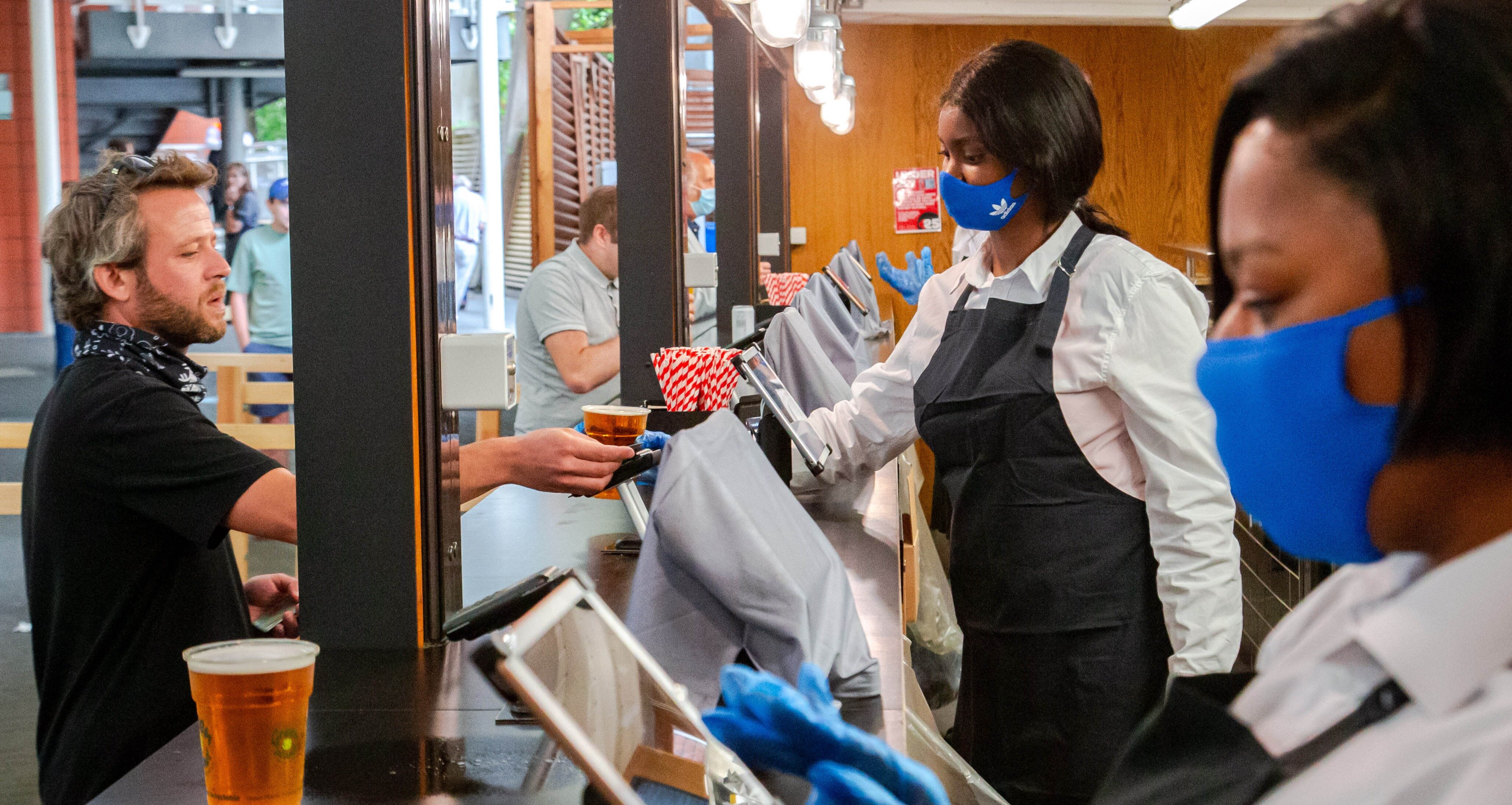
Lewis explained: “We had some suggestions from outside the business that we might just do sandwiches, but we had to say that it just wouldn’t have been acceptable. We’ve got customers coming for an eight-hour sporting event who are not just going to eat a sandwich and have a packet of crisps. Plus, we wanted to challenge ourselves and to do the sort of food that is deliverable by government guidelines as well as being of the standard and quality we wanted to deliver.”
Levy managing director Jon Davies added: “People come to our events to have fun, they are there for entertainment, because they choose to be there. This isn’t a job, or a function they have to go through and we’re asking them to part with hard-earned cash. We can’t make it too sterile. We have to show that people are still going to enjoy themselves, that they’ll feel that they're in a safe and secure environment, but also that they can relax and, in the case of the Oval, see some great cricket.”
Video recordings from the day show “ecstatic” fans delighted to be back enjoying live sport, but for all the success both Lewis and Davies stressed the need for timeline to be in place to make the industry sustainable once again.
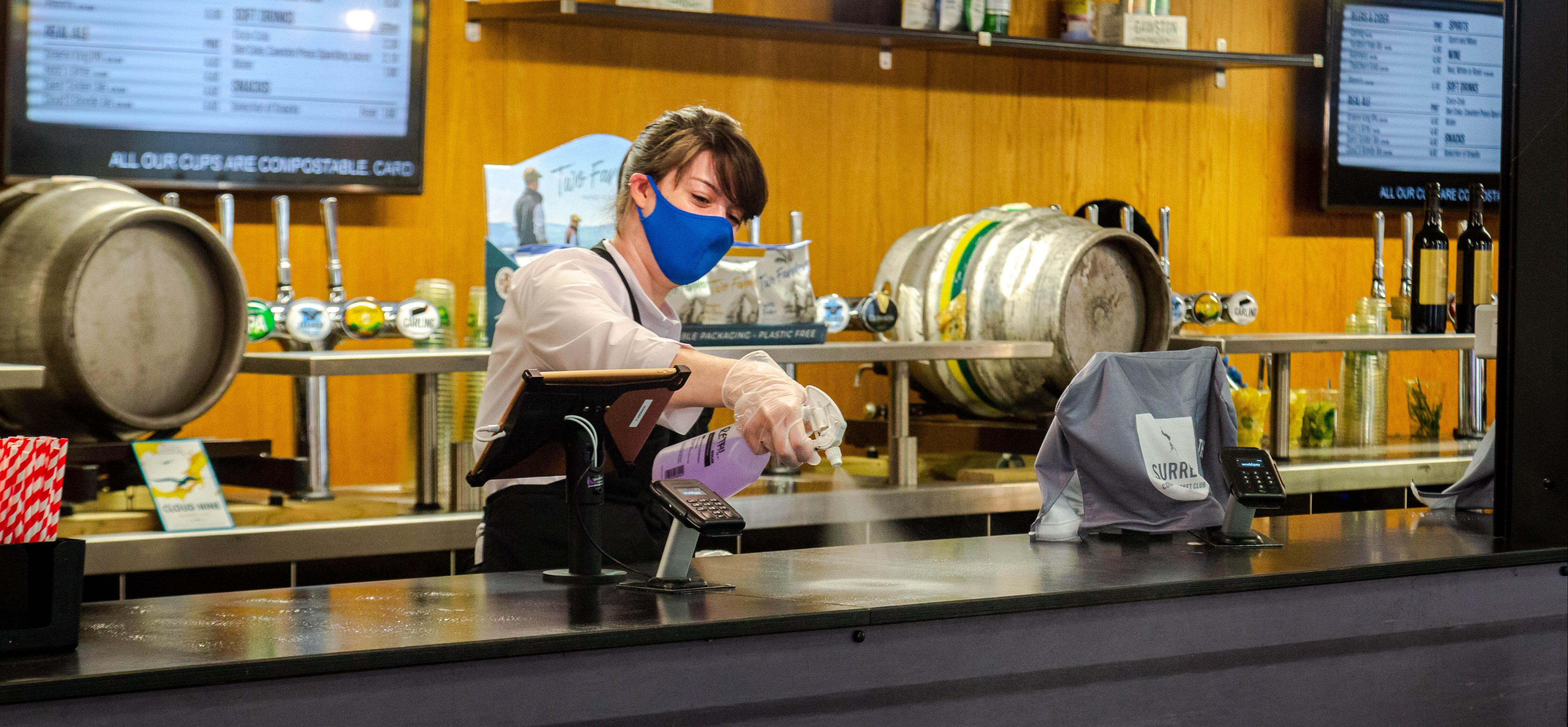
Lewis said: “A thousand people isn’t sustainable in a 25,000-seater stadium. The second pilot will hopefully be 2,500 people, that’s not sustainable either, but it’s stepping in the right direction. From a catering perspective at 2,500 we’re pretty confident we can start to break even, but it is not the goal of our business to break even– we need to start getting ultimately to full capacity.”
Davies added: “It’s been incredibly tough for everyone and the hospitality industry is on its knees at the moment, so we have to fight back and show a way through for the good of everybody.
“There are so many people that rely on us for employment. We have been redeploying staff into as many places as we can and many event staff have been helping colleagues in the healthcare divisions, but ultimately we need to get these events back to provide the employment opportunities. They’re not just a commercial reality for Levy UK and our client partners – many thousands of people rely on us to give them opportunities to work at these major events.”
Levy’s teams work across a multitude of sporting venues, including football and rugby stadiums, horse racing courses and the All England Tennis Club – home of the Wimbledon championship.
Davies added: “It definitely won’t be a cookie-cutter approach, it will be dependent on the facilities and space available. For example, your average horse racing course has a huge amount of outdoor space to utilise. But, in Premiership football we go from ultra-modern stadiums like Tottenham Hotspur to some that have been around for 100 years or more that weren’t built with space in mind and have their challenges.
“We’ll have to judge the capacity, the open space, how people travel to that event and the capacity of local infrastructure. Sometimes there are no easy answers to those questions, but we need to have the ability to scale up where we’re in a great position to do so, or put in place really good plans for the venues that maybe are a bit older or tighter in terms of footprint so we get the right solution. There is always going to be a way forward and we have an opportunity to make sure F&B can be delivered in a safe way.”
Watch a video of the pilot here.



